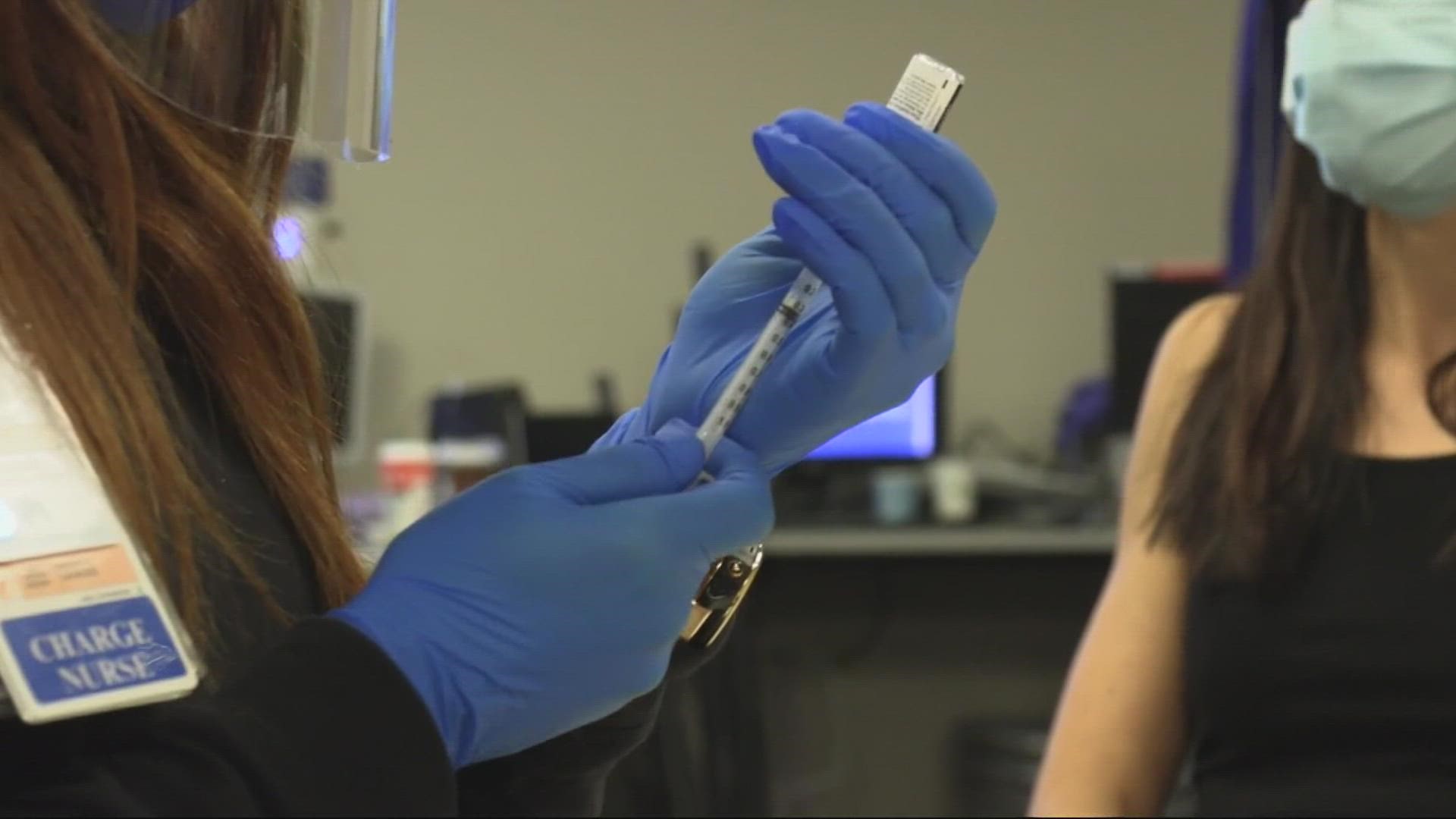PORTLAND, Ore. — There's been a lot of talk about "natural immunity" when it comes to COVID-19 — many insisting they don't need the vaccine because they've already had COVID.
Jonathan Isaac, who plays professional basketball for the Orlando Magic, recently said he would not get vaccinated because he's previously been infected.
Florida Governor Ron Desantis has said natural immunity is as good as the vaccine, a claim that is highly disputed. Some LAPD officers have sued the city of Los Angeles in federal court, opposing the vaccine mandate and citing natural immunity as one of the reasons they should not have to comply.
Experts KGW spoke to said natural immunity does offer some protection but the strongest immunity comes when natural immunity is paired with the vaccine.
RELATED: Unvaccinated Legacy workers protest religious exemption denials; experts say denials should hold up
"Natural immunity" is acquired from exposure to COVID-19 through infection with the actual disease.
Dr. William Messer at Oregon Health and Sciences University (OHSU) explained it like this — your immune system remembers the pathogens it's been exposed to:
"Through that memory our immune system protects us from getting sick, or is trying to protect us from getting sick again, with something that has made us sick once already," Dr. Messer said.
But is the protection you get from natural immunity the same or better than a covid vaccine?
Like much else during the pandemic, the answer is complicated. Several studies show natural immunity does offer protection against reinfection but the strength of that immunity varies significantly from person to person.
"There is a close correlation between how sick you got when you got COVID-19 and what kind of immunity you get," said Dr. Messer. "To get immunity equivalent to what we see with people who are just vaccinated, you needed to be hospitalized and you needed to be really sick."
In other words, the natural immunity that develops from a mild case of COVID-19 could be significantly less effective than a vaccine.
There's another caveat with natural immunity — it's unclear how long it lasts.
Dr. Thomas Jeanne, the Deputy State Health Officer with the Oregon Health Authority (OHA) said the research on vaccines is much clearer than the research on natural immunity.
"We don't know exactly how long that [natural immunity] lasts and it really makes determining who is immune enough, and for how long they are, very difficult," said Dr. Jeanne.
Natural immunity is not a substitute for the vaccine in any of the mandates imposed by Gov. Brown and the Oregon Health Authority but it is taken into account in other circumstances.
For example, according to OHA's COVID-19 guidance for schools, students who are deemed a "close contact" do not have to quarantine if they have had covid in the last 90 days — that includes those who are unvaccinated.
"We know that COVID-19 does provide some natural protection and the current evidence indicates that re-infection is very uncommon in the 90 days after that initial infection," said Dr. Jeanne. "But again, 90 days isn't very long and we don't know how long after that it lasts."
What is clear, according to researchers at OHSU, is that those who have had covid and are fully vaccinated have the strongest immunity.
"Someone who has been previously infected and gets vaccinated has essentially all of the benefits of stimulating their immune system to respond and expand again with the vaccine, without the risks of actually having been infected a second time," said Dr. Messer.

